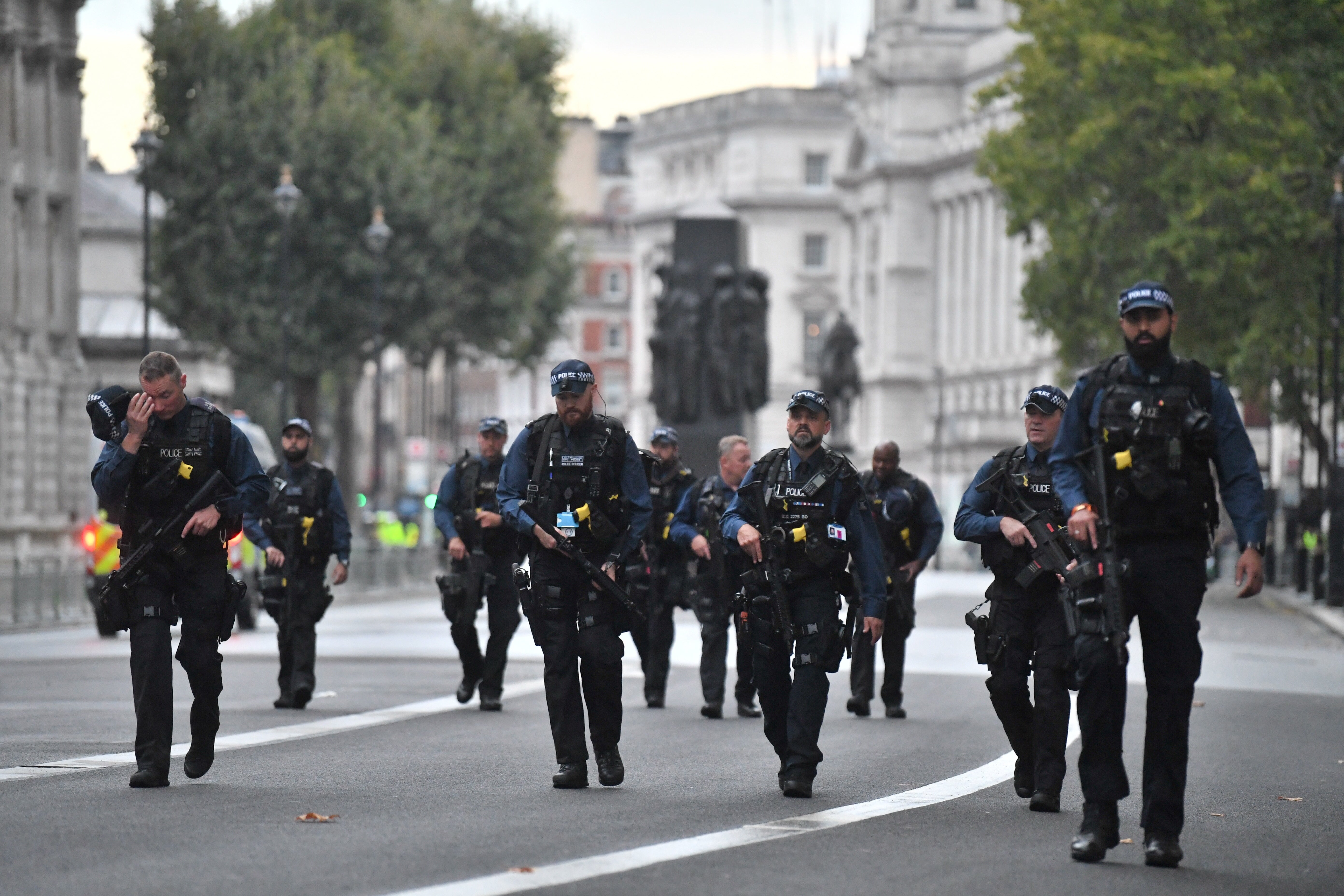‘Suspicious activity’ reports to counter-terror police double following Queen’s death
Reports received during mourning period ‘actively considered’ by investigators after huge security operation

Your support helps us to tell the story
From reproductive rights to climate change to Big Tech, The Independent is on the ground when the story is developing. Whether it's investigating the financials of Elon Musk's pro-Trump PAC or producing our latest documentary, 'The A Word', which shines a light on the American women fighting for reproductive rights, we know how important it is to parse out the facts from the messaging.
At such a critical moment in US history, we need reporters on the ground. Your donation allows us to keep sending journalists to speak to both sides of the story.
The Independent is trusted by Americans across the entire political spectrum. And unlike many other quality news outlets, we choose not to lock Americans out of our reporting and analysis with paywalls. We believe quality journalism should be available to everyone, paid for by those who can afford it.
Your support makes all the difference.British counter-terror police have received double the normal number of reports of “suspicious activity” following the Queen’s death.
Members of the public have flagged more than 800 incidents and concerns during the mourning period, with around 100 now being “actively used” by investigators.
The figure was released after the Queen’s funeral saw the UK’s biggest ever security operation mounted to protect thousands-strong crowds and hundreds of world leaders and dignitaries found around the globe.
Counter-terror police reviewed all ongoing investigations to check for any new risks or connections generated by the Queen’s death, and led on protective security for royal events.
Some released terror offenders were visited by officers ahead of Monday’s state funeral and questioned about their planned movements on the day.
The head of UK counter terrorism policing, Matt Jukes, said: “Reviewing current investigations and monitoring new intelligence has been absolutely vital in keeping the public safe over the last 10 days.
“By doing so, we have been able to take steps to ensure developing risk around places or people of interest has been responded to robustly.
“Communities across the country have played a crucial role. Every piece of information we receive has the potential to transform an investigation, create an opportunity for an arrest or simply help us build a clearer intelligence picture around someone, or something.”
Elite Counter Terrorism Specialist Firearms Officers were deployed to protect foreign dignitaries, while Operation London Bridge saw a record number of specialist armed police drawn from forces across the UK for “overt, discreet and covert” roles.
Searches were carried out for explosives and other potential threats at key venues, and protections against “hostile vehicles” were deployed around crowded locations and procession routes.
Specialist equipment was used to detect drones flying over London in violation of a ban and four people have been charged with drone-related criminal offences.
Mr Jukes said: “It is difficult to put into words the scale of the policing operation over the last ten days, it has been nothing short of incredible.
“Some of our activity will have brought our officers and the public shoulder to shoulder, other elements they won’t have seen.”
Figures for terror-related arrests have not yet been released for the period since the Queen’s death.
More than 200 terror suspects were arrested in the year to June, with a record 16 per cent being children under the age of 18.
White people made up the largest proportion of those arrested, followed by people of Asian ethnic appearance.
As of the start of this month, almost half of terror suspects arrested in the year remained under investigation, a quarter had been charged and another quarter had been released without charge.
Of the 14 terror attacks declared by police in the UK since March 2017, 10 have been committed by jihadists, two by far-right extremists and two were motivated by an unclear ideology.
In the same period, 32 attacks have been foiled by the security services - 18 by jihadists, 12 from the extreme right-wing and two labelled as “single issue terrorism”.



Join our commenting forum
Join thought-provoking conversations, follow other Independent readers and see their replies
Comments